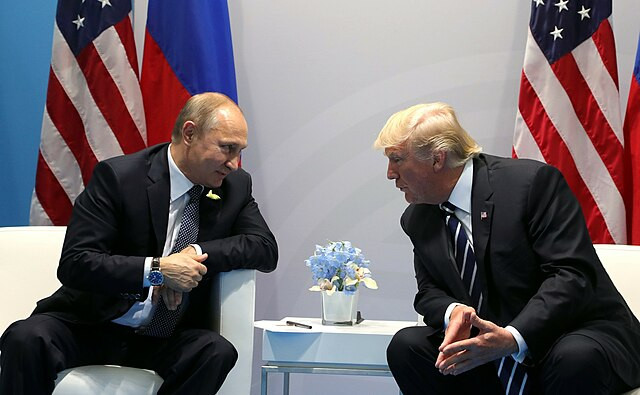President-elect Donald Trump announced plans to meet Russian President Vladimir Putin shortly after his inauguration on January 20, signaling a renewed focus on diplomacy to end the war in Ukraine. The move has drawn cautious optimism from Moscow and mixed reactions from Kyiv, where officials are eager to understand the implications for U.S. support in the conflict.
"He wants to meet, and we are setting it up," Trump said Thursday at his Mar-a-Lago resort in Florida, adding that Putin had expressed a desire for dialogue. "We have to get that war over with. That's a bloody mess."
The Kremlin confirmed its openness to such a meeting but emphasized that details remain unresolved. Kremlin spokesperson Dmitry Peskov said Friday that Moscow welcomes Trump's intention to address international problems "through dialogue." However, he noted that discussions could not proceed until after Trump assumes office.
Trump has made resolving the Ukraine war a central pillar of his foreign policy agenda. Throughout his campaign, he criticized the U.S. for its extensive military and financial support for Kyiv and vowed to negotiate an end to the conflict quickly. Trump's nomination of retired Lieutenant General Keith Kellogg as special envoy to Ukraine and Russia underscores his intent to pursue a strategy rooted in dialogue.
Kellogg, a former national security adviser, has outlined his vision for ending the war, which includes conditional U.S. aid to Ukraine. In a research paper published last year by the America First Policy Institute, Kellogg argued that further assistance to Ukraine should be contingent on Kyiv's participation in peace talks with Moscow. Should Russia refuse to engage in negotiations, he recommended continuing aid to Ukraine.
"I think they're going to come to a solvable solution in the near term. And when I say near term, let's set it at 100 days and move our way back," Kellogg said earlier this week in an interview with Fox News.
Ukrainian President Volodymyr Zelensky expressed cautious optimism about Trump's intentions but warned that strong leadership would be required to compel Russia to negotiate in good faith. "I think that President Trump not only has will... he has enough power to pressure him, to pressure Putin - not into wanting to stop it," Zelensky said during a recent interview. "To pressure him to actually stop it, that is the difference."
Zelensky acknowledged the possibility of dialogue but stressed that Ukraine must maintain a strong position. "It's naive to say that Putin wants to finish the war," he said. "Ukraine needs to be in a strong position to compel Putin to come to a resolution."
Trump's approach marks a stark departure from the Biden administration's unwavering support for Ukraine. Since the war began in 2022, the U.S. has provided billions of dollars in military aid and weapons to Kyiv. Trump's skepticism about such aid has fueled debate over the future of U.S. involvement in the conflict.
Reports suggest that Trump has communicated with Putin during his time out of office, though the Kremlin has denied these claims. According to journalist Bob Woodward, Trump allegedly urged Putin not to escalate the war shortly after the U.S. midterm elections in November, a report echoed by The Washington Post.
While Trump's willingness to engage with both Putin and Zelensky has raised hopes for a diplomatic breakthrough, skepticism persists. Zelensky and his administration are reportedly seeking clarity on Trump's plans and have indicated that high-level talks between Kyiv and the incoming administration are expected following the inauguration.
The Kremlin, for its part, remains guarded in its optimism. Peskov reiterated that any resolution would require careful coordination and that Russia remains open to discussions without preconditions.






